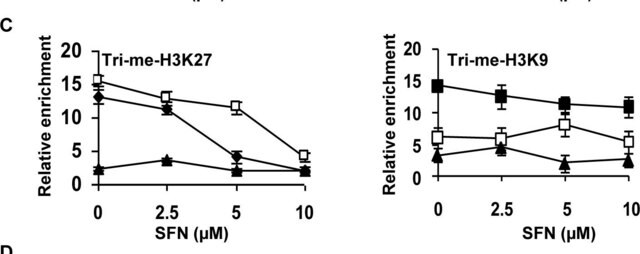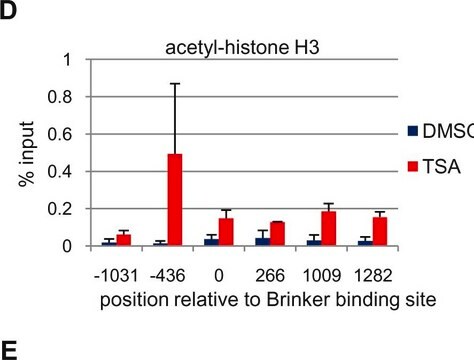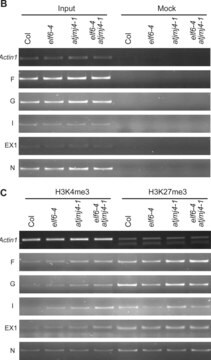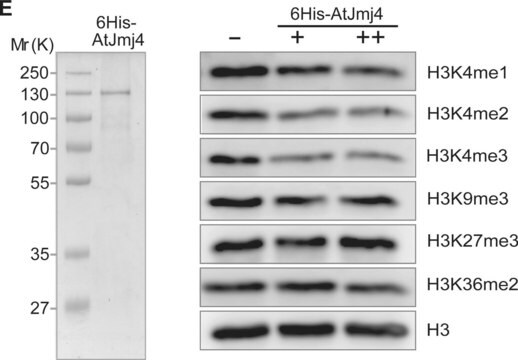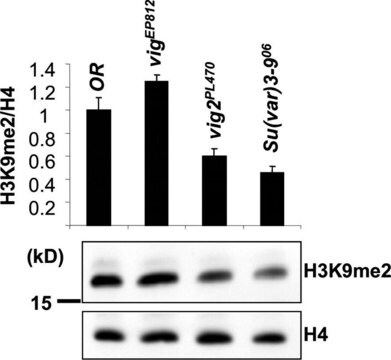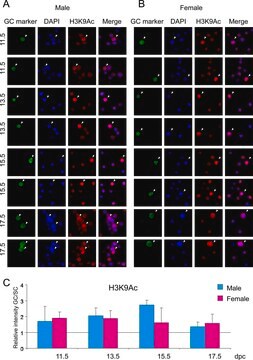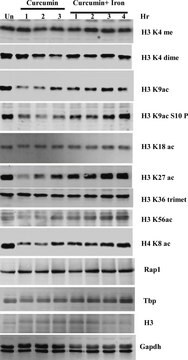M4819
Anti-methyl-Histone H3 (Me-Lys4) antibody produced in rabbit
affinity isolated antibody, buffered aqueous solution
Synonym(s):
Anti-H3K4me1
About This Item
Recommended Products
biological source
rabbit
Quality Level
conjugate
unconjugated
antibody form
affinity isolated antibody
antibody product type
primary antibodies
clone
polyclonal
form
buffered aqueous solution
mol wt
antigen 17 kDa
species reactivity
Caenorhabditis elegans, rat, chicken, Drosophila, bovine, Arabidopsis thaliana, human, mouse, frog
technique(s)
western blot: 0.5-1 μg/mL using whole cell extract of human HeLa cells, human Jurkat cells, or mouse NIH3T3 cells
UniProt accession no.
shipped in
dry ice
storage temp.
−20°C
target post-translational modification
monomethylation (Lys4)
Gene Information
human ... H3F3A(3020) , H3F3B(3021) , HIST1H3A(8350) , HIST1H3B(8358) , HIST1H3C(8352) , HIST1H3D(8351) , HIST1H3E(8353) , HIST1H3F(8968) , HIST1H3G(8355) , HIST1H3H(8357) , HIST1H3I(8354) , HIST1H3J(8356) , HIST2H3A(333932) , HIST2H3C(126961) , HIST3H3(8290)
mouse ... H3f3a(15078) , H3f3b(15081) , Hist1h3a(360198) , Hist1h3b(319150) , Hist1h3c(319148) , Hist1h3d(319149) , Hist1h3e(319151) , Hist1h3f(260423) , Hist1h3g(97908) , Hist1h3h(319152) , Hist1h3i(319153) , Hist2h3b(319154) , Hist2h3c1(15077) , Hist2h3c2(97114)
rat ... H3f3b(117056)
General description
Specificity
Immunogen
Application
Biochem/physiol Actions
Physical form
Storage and Stability
Disclaimer
Not finding the right product?
Try our Product Selector Tool.
Storage Class Code
10 - Combustible liquids
WGK
WGK 3
Flash Point(F)
Not applicable
Flash Point(C)
Not applicable
Personal Protective Equipment
Choose from one of the most recent versions:
Certificates of Analysis (COA)
Don't see the Right Version?
If you require a particular version, you can look up a specific certificate by the Lot or Batch number.
Already Own This Product?
Find documentation for the products that you have recently purchased in the Document Library.
Our team of scientists has experience in all areas of research including Life Science, Material Science, Chemical Synthesis, Chromatography, Analytical and many others.
Contact Technical Service